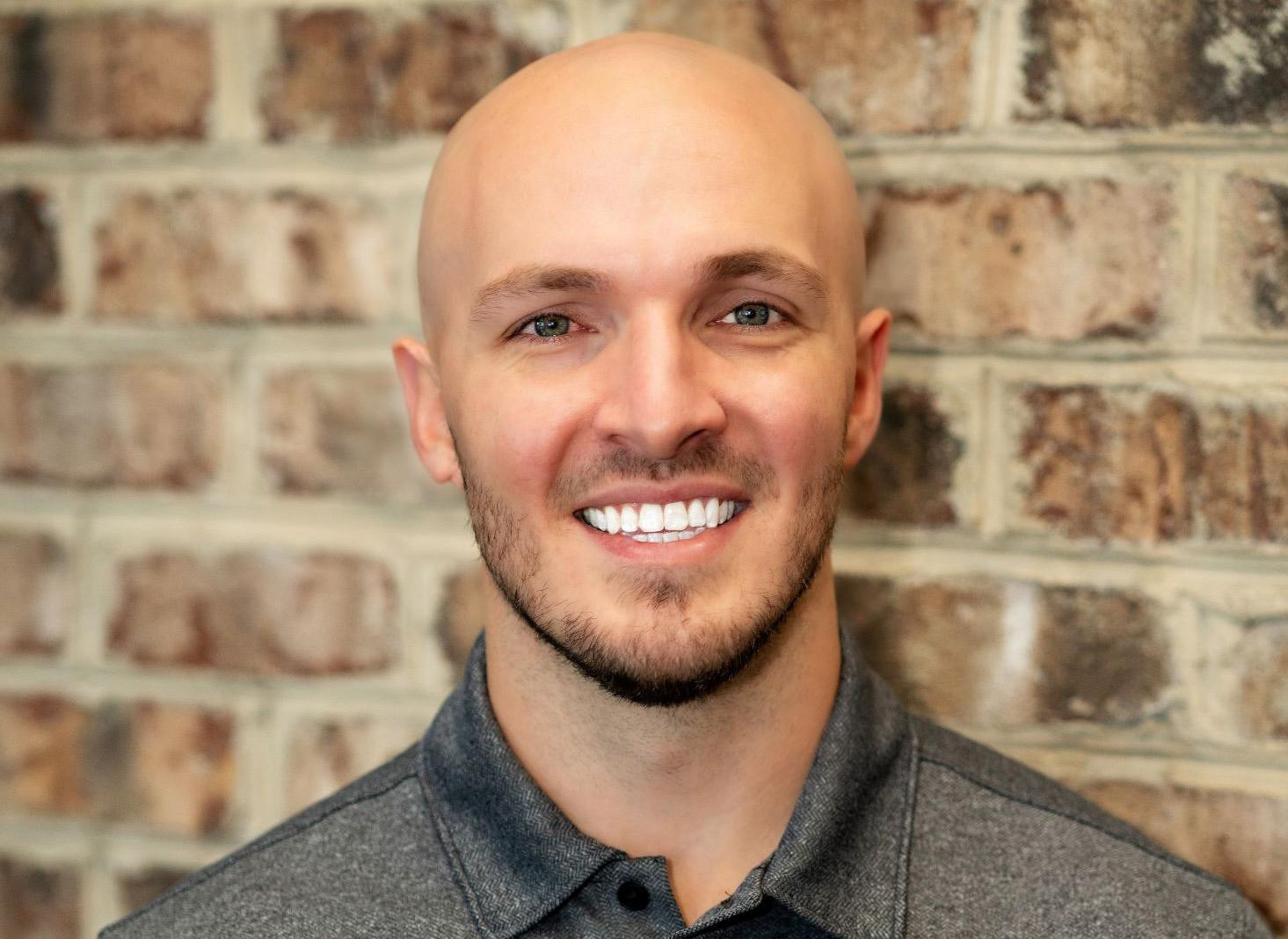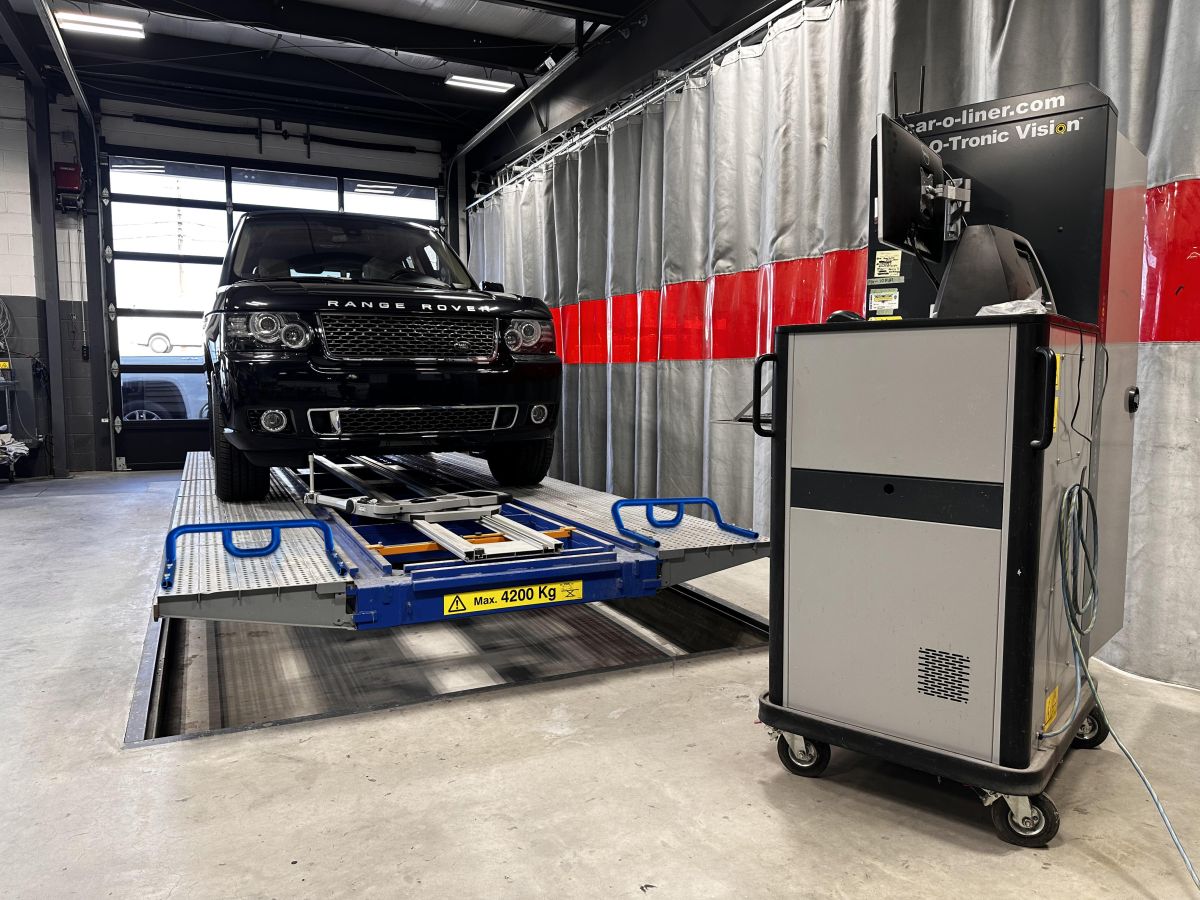As vehicles and repair procedures become more complex, the single store generalist body shop model is becoming less sustainable.
The Collision Vision podcast, driven by Autobody News and hosted by Cole Strandberg, is exploring the three paths forward to increased profitability for such shops: specializing, scaling and selling.
To take a close look at specialization, Strandberg recently spoke to Kyle Bradshaw, of K & M Collision in North Carolina, about how his family business has carved out a niche, allowing it to thrive by focusing on high-end vehicles and OEM certifications.
Bradshaw said his dad founded K & M Collision to provide for his family, not expecting it to be particularly lucrative. When Bradshaw’s brother, Michael, grew up and got involved, he saw where the industry was headed in terms of OEM certifications, and encouraged their dad to start investing in them early in 2013.
“We saw this is really a good model for us. We really valued repairing the vehicle the proper way, the OEM way,” Bradshaw said.
Customers noticed too. “It was a way for us to market ourselves to be different from everybody else in the market,” he said. K & M Collision continued to earn OEM certifications, focusing on luxury and exotic vehicles.
There are five Bradshaw brothers; all but the youngest, still in his teens, now work for the family business. Kyle has been with the shop for about 10 years.
Choosing to Specialize -- And Sticking to It
Strandberg asked about picking a type of vehicle to focus on, and then turning down work outside of it.
Bradshaw said the “ability to say ‘no’ is a really strong business trait.” It empowers employees by assuring them “this is what we do, and we do it well.”
 Kyle Bradshaw.
Kyle Bradshaw.
It also allows the business to avoid competing on price alone. “What we do is highly specialized. We've invested a ton of money in equipment, a ton of money in training. Obviously, we have to charge more for that,” Bradshaw said. “People understand that typically.”
It can be scary for some shop owners to turn down work outside that focus area, Bradshaw said.
“They feel like they've got to take every single car in that they possibly can, because if they don't, it's like the work's going to dry up today,” he said.
K & M Collision is aware of industry trends like lower claim counts, but the shop is not going to repair vehicles it’s not equipped or trained to do.
Picking Your Shop’s Specialization
When looking at OEM certifications to pursue, K & M Collision targets manufacturers sold by dealerships within a certain radius that don’t have their own service center. The shop then reaches out to the dealership to explain what it can offer to customers, and why it’s better than any other collision repair shop in the area.
“Dealers are extremely cognizant, just like OEMs are, if there's a poor experience from a collision repair standpoint, that it usually leads to a negative reflection on the brand,” Bradshaw said. “Because of that, a lot of times people leave the brand and never come back,” whether they switch to a different dealership or a different OEM.
K & M Collision emphasizes its delivery and pickup services, and use of 100% OEM parts.
“Even though a dealer could be three hours away, we have our own transport trucks. We'll go into those markets. We pick up the car from the customer, bring it here, repair the vehicle and deliver it back to the customer, or deliver it back to the dealer,” Bradshaw said.
Bradshaw said he makes it a point to develop a relationship with the dealerships that sponsor K & M Collision’s OEM certifications.
“I try to do my part and have a lunch or dinner as often as I can with some of those people [at dealerships] that we’re interacting with, and just making sure that the relationship is good,” he said.
Being certified builds potential customers’ confidence in the shop’s ability to correctly fix their car, Bradshaw said.
“We place a big emphasis on educating our customers,” Bradshaw said. “Whether that's on the OEM certification and what that means and what training we've been through, or the insurance process.”
Being certified “certainly helps a customer who's going through a lot of a lot of emotions at that point in time,” he added. “I think it helps to settle them down and understand, OK, these people are legit.”
The Process of OEM Certification
For the luxury brands K & M Collision focuses on, the first step is to be sponsored by a dealer.
Next, there is a monetary investment in joining a brand’s certified repair program, in terms of a fee and required tools and equipment that may need to be purchased. There are also training requirements for the shop’s technicians. Once the prerequisites are met, an OEM representative will do an audit on the shop.
Bradshaw said K & M Collision makes sure to market all of its OEM certifications.
Specialization for Collision Repair Technicians
K & M Collision also takes a “specialization approach” to how its employees repair the 100 to 115 vehicles that come through the shop every month.
Usually, the same tech both disassembles and reassembles a vehicle, which creates efficiency, as the tech who took it apart will know best how to put it back together, Bradshaw said.
Certain techs tend to work on the same make as well.
“A lot of times we have one guy that works on Porsches. If that's all he has to do, he has to know Porsches inside and out, and it become a repetitive task,” Bradshaw said. “It enables him to become extremely efficient.”
Specialized roles can also make hiring easier, as it allows the shop to cast a wider net, because it can train anyone with a mechanical inclination on their role.
K & M Collision also has low turnover and a relatively young crew. “The average age of our tech force is probably about 33 or 34 years old,” Bradshaw said. “The average tenure right now is about six and a half years.”
Bradshaw said the shop’s technicians stay because they take a lot of pride in what they’re doing, and enjoy the company culture. “Culture, I think, is something that you have to be extremely intentional about,” Bradshaw said.
K & M Collision helps its employees manage their money by offering annual courses with Dave Ramsey’s Financial Peace University, and K & M’s CFO Holly Hall will meet with employees one-on-one for budgeting sessions. The shop also has weekly Bible studies for employees who want to participate.
Bradshaw said it helps make the shop a place where employees can “sharpen their sword.”
“I feel like we'd be missing the mark if we didn't pour into our people and try to make them better in those facets of their life,” Bradshaw said.
Bradshaw is currently president of the Carolinas Collision Association’s (CCA) Board of Directors. Participation in local collision repair associations is also key to staying on top of news in the industry, and sharing ideas with other operators.
Strandberg asked if top-performing shops are members of their local associations because they're the best, or if they are the best because they're members of their local association.
“I'll say this: most of the time, people who are the best are constantly striving for ways to be the best and are constantly looking for ways to better themselves,” Bradshaw said. Bringing together operators in an association helps them learn from each other, raising the bar for everyone.
“[CCA] has gotten a lot of really strong buy-in from a lot of strong shops, and it's just kind of taken off like a wildfire around here,” Bradshaw said. “We're trying to harness it and continue to grow it.”
The Future of Collision Repair Specialization
“You have to look at what's going on from a consolidation standpoint,” Bradshaw said. “Typically, your bigger and stronger single location shops are growing into an MSO…and there's been some consolidators that are starting to even buy up some of the single stores too.”
K & M Collision has about 30 OEM certifications currently. Bradshaw said he thinks eventually, it will need to pare them down and focus on fewer manufacturers.
“Moving forward, we have decided to really focus on the luxury, the high line stuff,” Bradshaw said.
Management is looking at the ROI on some certifications.
“Within the last year, we have had to take a step back and look at, well, we paid this fee and we did this training and we have this equipment, and we fixed two of their cars last year,” Bradshaw said. “Does that really make sense for us to continue to be on that program? For two or three cars? Probably not.”
Being able to work on some of those makes has made it cost-effective for K & M Collision to bring services like ADAS calibration, coatings and films in-house. Any work that has to be sublet goes back to the dealership that referred the vehicle.
K & M Collision has been able to continue expanding in its original location. Its first facility was 23,000 square feet. Eventually, a 10,000-square-foot addition was built. Now the business is in the process of clearing the lot next to it, to build another 20,000-square-foot facility.
“It's been really cool for us, because we've been able to expand in one location,” Bradshaw said, as keeping everything in one location helps management ensure consistent repair quality.
“We're not going out and buying 10 shops next year or anything like that, but we certainly have got some stuff coming down the pipeline that's going to be really impactful for us,” Bradshaw said. “It enables us to expand our footprint here where we're at, but also become more aggressive, from a marketing standpoint and some areas that we're really trying to target as well.”
Advice for Single Shop Owners Considering Specialization
“I think, first and foremost, it's not being scared to jump in the water,” Bradshaw said.
Other shop owners tell Bradshaw they’re not able to do what K & M Collision has done, but Bradshaw pointed out K & M had three or four employees 10 years ago.
“It doesn't just happen overnight,” Bradshaw said. “If you decide to go the path that we've went, there's certainly going to be struggles and there's work that has to be put in. But I think it can be very lucrative and very rewarding. I think it's just the not letting fear keep you on the sidelines.”
Vehicles are only going to continue to evolve, and “if you don't have a thought process of the future and what that's going to look like for you and your business, you're going to get left behind really fast,” he added.














Abby Andrews